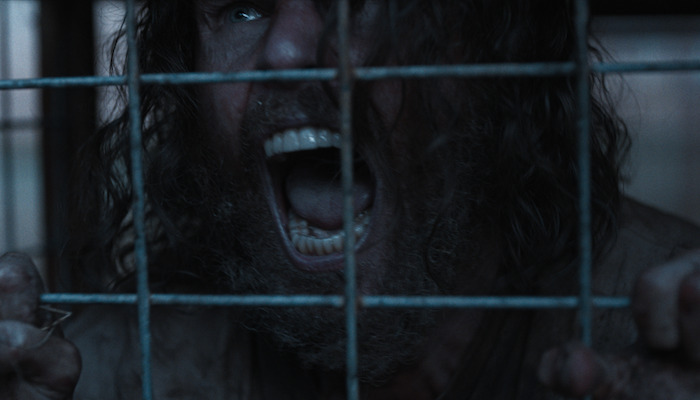Film Review: THE LESSON (2023): Subtle Family Drama Ends With a Savory Surprise [Tribeca 2023]
The Lesson Review
The Lesson (2023) Film Review from the 22nd Annual Tribeca Film Festival, a movie directed by Alice Troughton, written by Alex MacKeith, and starring Julie Delpy, Daryl McCormack, Richard E. Grant, Stephen McMillan, Crispin Letts, and Tomas Spencer.
A young author navigates precarious propriety as he tutors the son of the renowned writer he admires in The Lesson.
Aspiring novelist Liam Sommers cannot believe his luck when famous author J. M. Sinclair hires him to tutor his son Bertie in preparation for the entrance exams at Oxford. Except for two brief scenes, first and last, the story takes place exclusively at Sinclair’s country estate. At once we can feel the cryptic restraint and gothic undercurrent — a blanket of Victorian style decorum lay heavily over the bucolic tranquility. Even the dogged formality of Ellis, the butler and sole servant, has the air about him of family-secrets-best-kept-unsaid whenever he pops up.
This atmosphere is at odds with Liam’s naturally open, ingenuous nature, but Liam holds steady nonetheless against Sinclair’s imperious, patronizing generosity and Bertie’s resigned, sullen stoicism, who is also oppositional well within the bounds of a college bound young adult.
Liam does, however, cotton to the lady of the house, Hélène — and why not? It’s easy to admire this down to earth yet upright and dignified matron, as statuesque as middle age allows. She offers Liam a comparatively warm welcome, even as she hands over contract documents for his signature. He comes to rely on her confidential tidbits, frankness (by the standards of this household), eventual intimacy, and ultimately, when things get dodgy, her advice.
Before long we discover (after a number of hints) the pall over this household, and not an especially unusual one: Felix, an older son showing so much promise, had drowned in the pond nearby some years previously. Ordinary People springs to mind in pretty short order — unresolved grief issues of the upper middle class, but soon pushed out by the more immediate issues at hand.
Liam has two characteristics of particular value for the Sinclairs. The first brought Liam to Sinclair’s attention when scouting for a tutor — a near photographic memory, which proves invaluable later. The second was happenstance when Sinclair encountered a printer problem: Liam’s tech savviness that approaches professional caliber, learned from hanging around his IT wizard father. Meanwhile, Liam makes significant progress with Bertie, both as a tutor and as a friend, to the grudging satisfaction of J. M., and the muted delight of Hélène.
Ms. Troughton stages camera angles very well in general, but she employs two remarkable visual devices in particular which appear to stand out.
The first is shots from peering into windows from the outside — people writing, reading, and other mundane activities. But one shows Liam witnessing an explicit sexual act between J. M. and Hélène, who sees him and responds with a smile, unabashed and sly, just for him. We find out this means come hither for Liam, but for the audience he serves as a proxy beyond voyeurism; it symbolizes the walls of propriety behind which a Peeping Tom must find most of this family’s deeper emotional interaction.
The second involves reflected images, the reflecting surface bisecting the frame — a gallery mirror where she hanging works of art (Hélène is an art dealer and curator), her image reflected in the pane of glass, and so on. It is curious that Hélène occupies most, if not all of them. Could this be another symbol of propriety — the persona for show apart from her secret one, foreshadowing the duplicity she later discloses?
Events take a darker turn when J. M. and Liam stray beyond their contract into choppy waters. They agree to read and critique each other’s fiction: Liam’s first; J. M.’s first in a very long time, so he says, of worthy quality. Each offered less praise than the other expected, and the plot descends into a frantic series of fits and starts, surreptitious close calls and near misses.
Because the pacing is so revved up from this point, following the bewildering sequence of events (centered on a missing manuscript) is a challenge to say the least. But the upshot is this: Felix is at the center of it after all, and Hélène contrived all that transpired — supporting and seducing Liam and then duping and betraying him, exacting eye-for-an-eye retribution visited upon J. M. and then posthumously extolling his talents, everything — before Liam had even set foot in the house. The members of the spare cast play off each other very well, particularly toward the end, when the pacing bolsters, but Grant’s progressively unhinged panic attacks deserves special mention.
At the end of the day, The Lesson turned out to be a regenerating genre hybrid. It begins as something like one of those English drawing room dramas of yesteryear, bounding hard and fast into a strange specie of murder mystery.
Here’s something to mull over: Could ‘Liam Sommers’ have been a deliberate permutation of Will Somers, Henry VIII’s talented and honest Fool, and arguably the most famous dupe in history, or just a coincidence?
Rating: 8/10
Leave your thoughts on this The Lesson review and the film below in the comments section. Readers seeking to support this type of content can visit our Patreon Page and become one of FilmBook’s patrons. Readers seeking more Tribeca Film Festival news can visit our Tribeca Film Festival Page, our Film Festival Page, and our Film Festival Facebook Page.
Readers seeking more film reviews can visit our Movie Review Page, our Movie Review Twitter Page, and our Movie Review Facebook Page.
Want up-to-the-minute notifications? FilmBook staff members publish articles by Email, Feedly, Twitter, Facebook, Instagram, Tumblr, Pinterest, Reddit, Telegram, Mastodon, and Flipboard.
Related Articles
FilmBook's Newsletter
Subscribe to FilmBook’s Daily Newsletter for the latest news!













